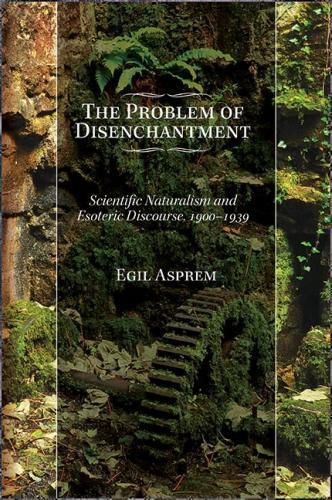Readings Newsletter
Become a Readings Member to make your shopping experience even easier.
Sign in or sign up for free!
You’re not far away from qualifying for FREE standard shipping within Australia
You’ve qualified for FREE standard shipping within Australia
The cart is loading…






Max Weber famously characterized the ongoing process of intellectualization and rationalization that separates the natural world from the divine (by excluding magic and value from the realm of science, and reason and fact from the realm of religion) as the disenchantment of the world. Egil Asprem argues for a conceptual shift in how we view this key narrative of modernity. Instead of a sociohistorical process of disenchantment that produces increasingly rational minds, Asprem maintains that the continued presence of magic and enchantment in people’s everyday experience of the world created an intellectual problem for those few who were socialized to believe that nature should contain no such incalculable mysteries. Drawing on a wide range of early twentieth-century primary sources from theoretical physics, occultism, embryology, radioactivity, psychical research, and other fields, Asprem casts the intellectual life of high modernity as a synchronic struggle across conspicuously different fields that shared surprisingly similar intellectual problems about value, meaning, and the limits of knowledge.
$9.00 standard shipping within Australia
FREE standard shipping within Australia for orders over $100.00
Express & International shipping calculated at checkout
Max Weber famously characterized the ongoing process of intellectualization and rationalization that separates the natural world from the divine (by excluding magic and value from the realm of science, and reason and fact from the realm of religion) as the disenchantment of the world. Egil Asprem argues for a conceptual shift in how we view this key narrative of modernity. Instead of a sociohistorical process of disenchantment that produces increasingly rational minds, Asprem maintains that the continued presence of magic and enchantment in people’s everyday experience of the world created an intellectual problem for those few who were socialized to believe that nature should contain no such incalculable mysteries. Drawing on a wide range of early twentieth-century primary sources from theoretical physics, occultism, embryology, radioactivity, psychical research, and other fields, Asprem casts the intellectual life of high modernity as a synchronic struggle across conspicuously different fields that shared surprisingly similar intellectual problems about value, meaning, and the limits of knowledge.